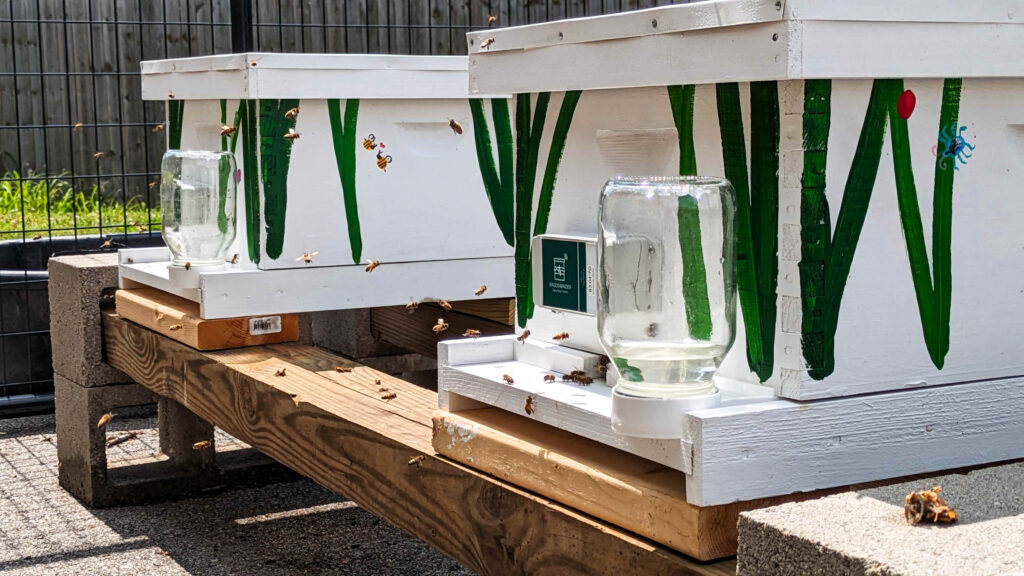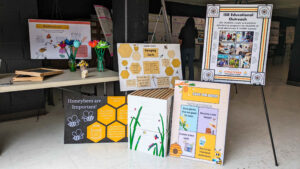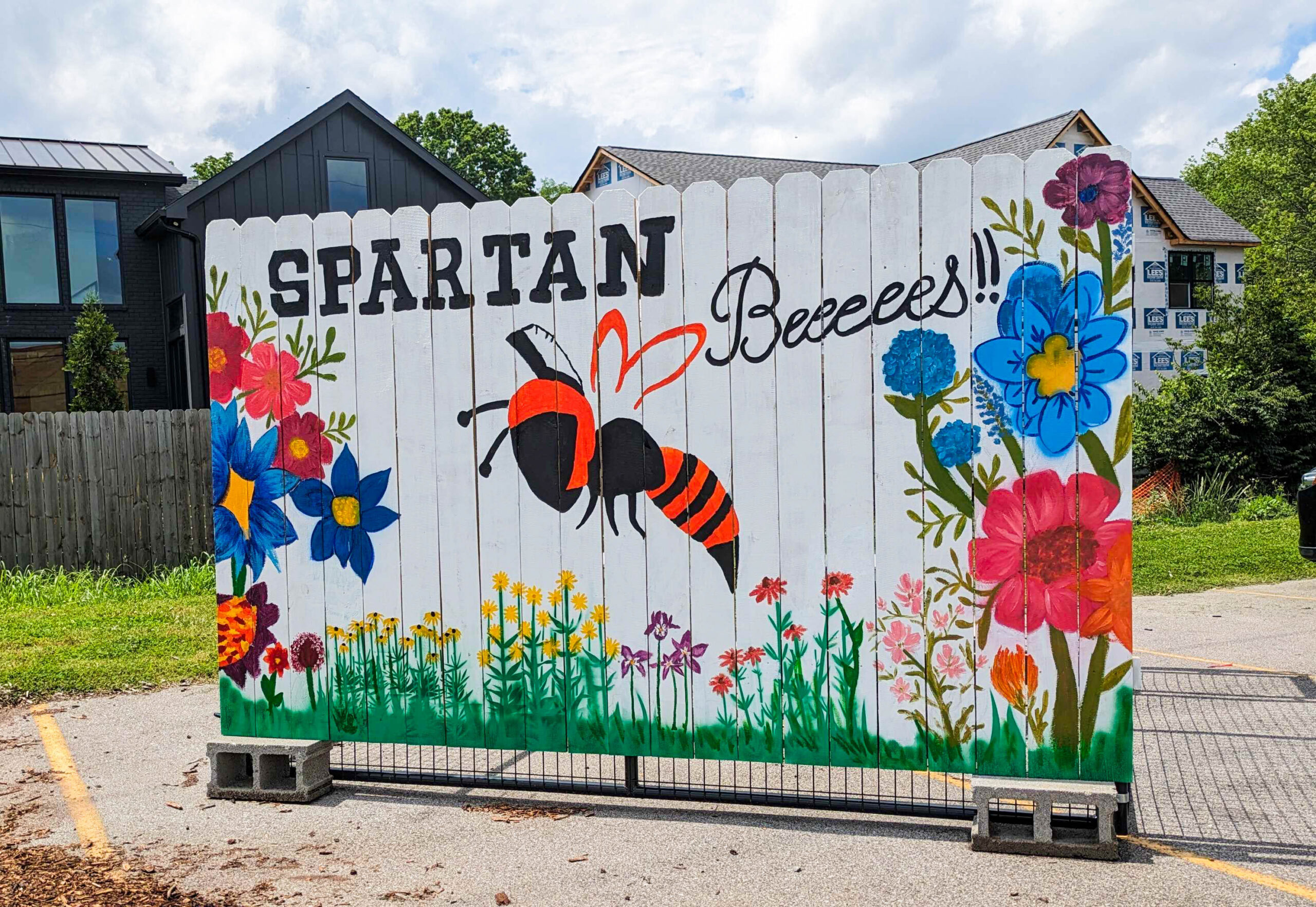
A small crowd gathered around an enclosure last week at Stratford STEM Magnet High School in Nashville. Behind the fence, thousands and thousands of bees buzzed in and out of hand-painted boxes. These insects are just the latest way that students at the school will get access to hands-on scientific research.
More: Who cares for Centennial Park’s bee colony? Come along for a hive check with the volunteers
Stratford received the bees, along with beekeeping equipment, protective clothing and veils from Honeybee Tennessee. Students will learn how to tend to the pollinators and, eventually, harvest honey for sale. But more importantly, the bees are here to impart several lessons.
“Our goal is to help the kids understand where pollinators fit into our ecosystem,” said science teacher Jesi Seifert. “Help them understand how important it is to have healthy pollinators, and to show them that there’s a way we can actively help it happen.”
 Alexis Marshall WPLN News
Alexis Marshall WPLN NewsStratford STEM Magnet High School students look at the new hives through the fence.
Hands-on research experience
Seifert is part of a special program at Stratford called Interdisciplinary Science and Research, or ISR. She co-teaches with a Vanderbilt Ph.D. on all sorts of different science topics, and her students get tons of hands-on experience out in the field.
“So we have taken our kids camping several times, to dig for fossils, to visit waterfalls,” Seifert said, “and it’s made a huge difference.”
Students at the grand opening of the hives backed that up. Student JJ, who just returned from a class camping trip earlier in the week, described getting into everything from neuroscience to marine biology.
“Anything a kid thinks in middle school, like, ‘Oh, this would be so cool to do,’ we do it in here,” JJ said.
 Alexis Marshall WPLN News
Alexis Marshall WPLN NewsStratford students created educational materials about bees to share with younger grades.
And along with the fun comes serious research. Students said the work was challenging but engaging, motivating them to stay caught up and on task.
Henry, who’s a junior at Stratford, described the yearlong capstone project that ISR seniors complete: “Ms. Seifert and our doctor in the lab help them go the full nine yards. We do an abstract, introduction, methodology, results, conclusion, write a paper on your work, gather the funding yourself. Everything.”
Meanwhile, juniors have been surveying dog poop and water quality at Shelby Park. Now that the bees are on campus, students will have yet another hands-on learning experience at their disposal.
What bees can teach us
Seifert said they’ll be a great addition for freshmen, whose first lesson is about pollinators.
“They actually get out in the gardens, make field guides, learn about the bees, and they will be more exposed to it,” Seifert said.
The school got grant funding for a thermal camera to observe them in their hive and surrounding habitat. And Stratford plans to get an observation hive, allowing students to see things like bees’ waggle dances.
But students in any grade who are especially interested in the insects will be able to volunteer to take care of them. However, it will be a while before students can harvest honey.
“The first year is growing a hive,” Seifert said. “So they are going to make babies and grow more.”
But in the meantime, the bees still have plenty to teach students.
“Bees are an amazing community, a female-dominated community,” Seifert said. “Everybody works for the better of the hive instead of the betterment of the individual, and it teaches a lot of valuable lessons to our kids about interacting with each other and getting stuff done.”
 Alexis Marshall WPLN News
Alexis Marshall WPLN NewsStudents painted a large mural on the bees’ enclosure, featuring bright wildflowers and a bee wearing a helmet to match the school mascot, the Spartans.

